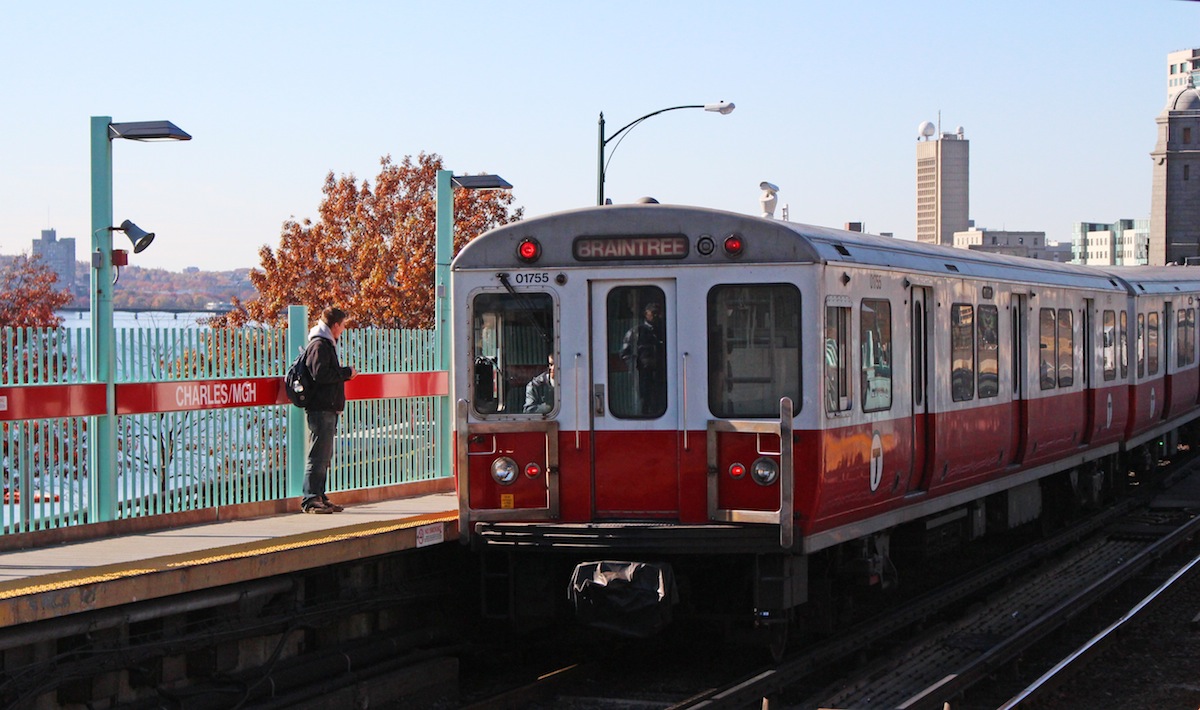MBTA Alerts Just Got Personal

Photo by Margaret Burdge
Figuring out which MBTA buses and trains are frequently running late just got easier.
During an event at Somerville’s Greentown Labs last weekend, as part of the National Day of Civic Hacking, coders, problem solvers, and creative thinkers were challenged to come up with technology-based solutions for dealing with everyday problems.
It was there that Code for Boston member Calvin Metcalf took data that he had scraped from the MBTA’s API over the last nine months to create individualized Twitter accounts that blast out alerts to users, telling them when a specific bus or train will be arriving behind schedule.
In total, Metcalf created around 16 new accounts, which he keeps an eye on regularly, informing daily commuters about the latest train and bus updates and problems.
The project, part of the weekend-long hackathon in Somerville, is an extension from the automated Twitter handle @MBTA_Alerts, which was created by an Amesbury developer and then later passed on to Code for Boston to manage. That account, which has 17,000 followers and counting, sends out frequent alerts about late transportation services based on the MBTA’s “readtime feed feed,” and tweets out the short descriptions about delays with the hashtag #mbta.
But Metcalf felt like having one alert mechanism for an entire train and bus system utilized by millions of daily riders wasn’t convenient enough for people that rely on checking in on Twitter for up-to-the-minute information.
That’s why he decided to break it down further so users could pick and choose which accounts to follow. “I have been dealing with [@MBTA_Alerts] for nine months, and one of things that sort of inspired me was that most people only take a line or two, and you have alerts for buses in Somerville mixed with trains coming from Providence,” he said. “So you end up seeing a lot of things you don’t need. It’s tricky to find what you care about, versus what applies to you.”
After figuring out which train and bus lines had the most alerts, based on the information provided by the MBTA, he created accounts that just tweet notices for single lines, so that it’s easier for riders who only use one or two specific lines to get information without spamming their Twitter feeds. None of the feeds are run or affiliated with the MBTA, he said.
“They have been working well. They started running over the weekend, and Im sort of looking at them to make sure nothing weird is going on, but so far” they are running smoothly, said Metcalf. “Now you can follow just the Red Line—or not follow it—or follow just the Green line. If you don’t care about the Red Line, you can ignore it.”
Below is a short list of some of the individual accounts Metcalf and Code for Boston created on Twitter to make things easier for commuters:
Fitchburg/South Acton Line Alerts
Framingham/Worcester Line Alerts
Newburyport/Rockport Line Alerts
Providence/Stoughton Line Alerts


